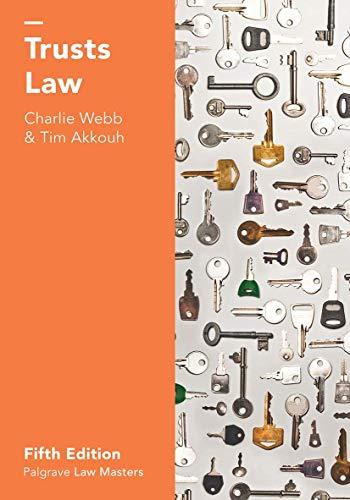Question
Answer all 12 short answer questions by using full sentences. Q1: Explain and evaluate the following types of legal documents: 1) Certificate of Title 2)
Answer all 12 short answer questions by using full sentences.
Q1: Explain and evaluate the following types of legal documents: 1) Certificate of Title 2) Owners Corporation Certificate 3) Abstract of title 4) Deed 5) Notice of acquisition 6) Caveat 7) Covenant
Q2: Explain and evaluate the difference between a contract of sale signed in a private sale and an auction.
Q3: What is a Section 27 statement?
Q4: Who can enter into a Section 173 agreement?
Q5: What restrictions can a Section 173 agreement include? Provide three examples.
Q6: Define "conflict of interest" as it applies to estate agents and agents' representatives.
Q7: Explain the difference between direct interest and indirect interest of an estate agent in a transaction. Provide an example of each.
Q8: Provide a brief overview of Section 55 of the Estate Agents Act 1980.
Q9: Many legal documents require that an individual's signature be witnessed by another person. Who can witness a signature for a mortgage document?
Q10: Detail three key points in witnessing a signature.
Q11: Describe the insurance requirements of Section 11 of the Sale of Land Act.
Q12: Describe what title insurance is and in what circumstances would it be advisable for a purchaser to have it?
Step by Step Solution
There are 3 Steps involved in it
Step: 1

Get Instant Access to Expert-Tailored Solutions
See step-by-step solutions with expert insights and AI powered tools for academic success
Step: 2

Step: 3

Ace Your Homework with AI
Get the answers you need in no time with our AI-driven, step-by-step assistance
Get Started


